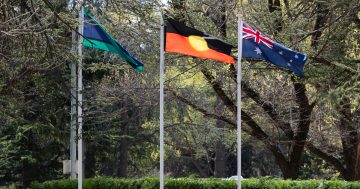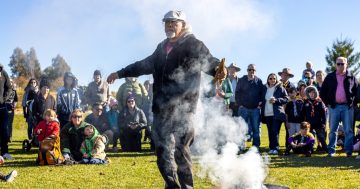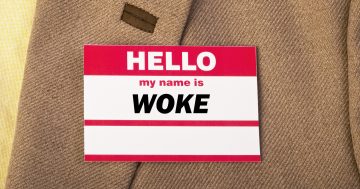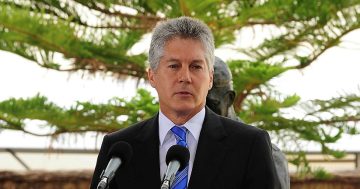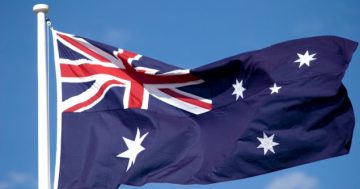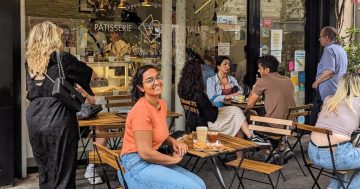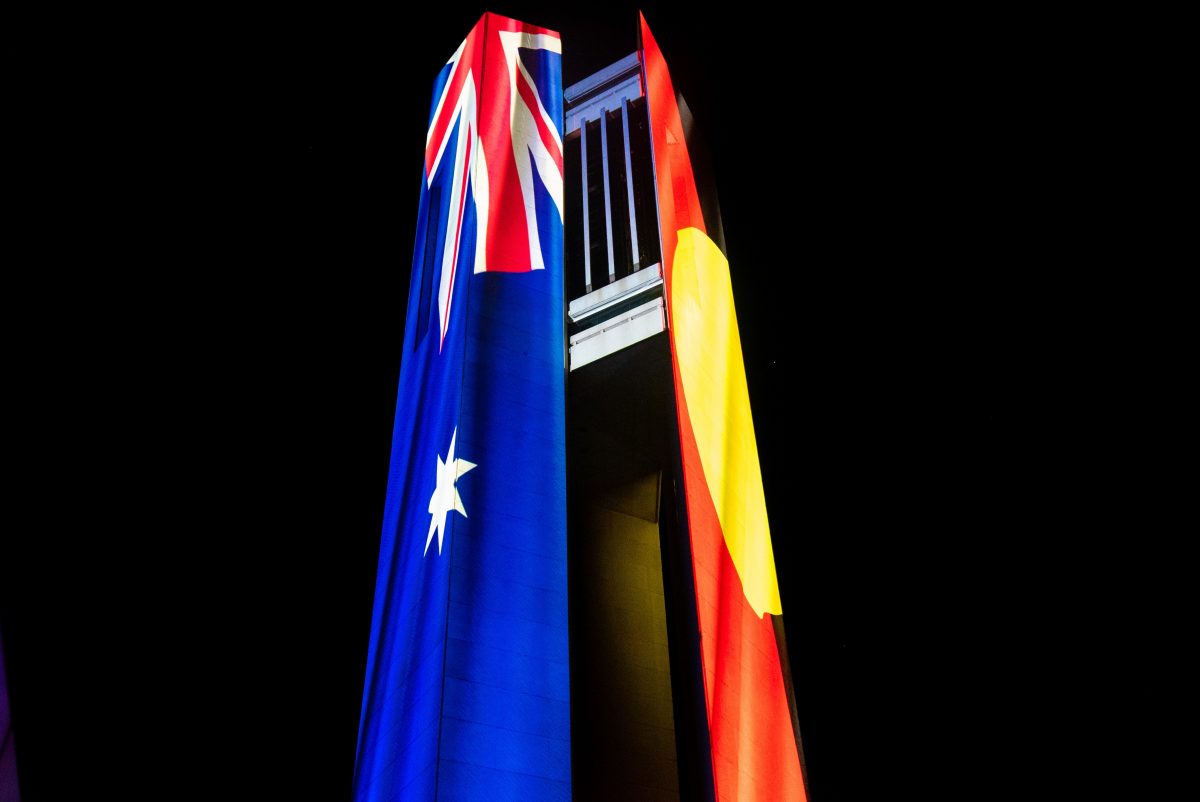
January 26 has a very different meaning for First Nations people. Photo: Dom Northcott.
Today may be ‘Australia Day’ in name, but there is no ignoring the fact that the 26th of January is not a day of unity and shared celebration, but is instead a fractious and contentious day that divides our community.
The nature of that division is what troubles me.
The fact that some Australians doggedly hold on to their ‘right’ to celebrate Australia Day on the 26th, despite the constant calls from First Nations Australians and allies to acknowledge the violence and dispossession the date commemorates, is concerning.
It’s as though changing the date would force a firm acknowledgement that colonisation occurred by force and that any Australia we celebrate today is built on the suffering of Indigenous Australians – that this is an undeniable fact is not a concern to proponents of Australia Day.
Across social media in the weeks leading up to today, I’ve watched numerous white Australians take to their devices to argue that they shouldn’t be forced to feel bad if they want to celebrate Australia Day, that they’re not racist for wanting to keep the date, and that spending time with their friends and family on the 26th shouldn’t be a source of guilt.
I’ve always felt that the guilt these Aussies are so anxious to evade is just an inevitable part of their Australian identity – you can try to ignore it, but it’s not going anywhere. Why would you not want to confront it head-on and support a move towards a more cohesive shared Australian identity that acknowledges and makes reparations for the violence our country was founded on?
Growing up, knowing I was born elsewhere, I always felt a certain distance from Australia’s colonial history.
I remember history lessons in school sparking defensiveness and frustration in some of my white Australian peers and wondering why they felt so persecuted when all they were facing were the facts of the past, which had no negative impact on their lives in the present.
In contrast, I could only imagine the pain Indigenous Australian students felt reflecting on our history and reckoning with the ongoing impact colonisation has had on their lived realities – generation after generation facing lower life expectancies, lower rates of educational attainment, heightened risk of chronic diseases, etc, all traceable back to that very first fleet landing on Australian shores.
Having endured a colonial past in my own family, both in India and in Fiji, and seen the ramifications in the lives of my parents and grandparents, I felt empathy for First Nations Australians and have also always been keenly aware of all the ways I benefit from the violence that was perpetrated on them. As a migrant to Australia, I am able to enjoy the economic prosperity and living conditions that have been built as a direct result of stolen land exploited for its value.
I treat Australia Day as an opportunity to grow and be an ally.
I donate to the Indigenous Literacy Foundation every year on the 26th, spend time watching, reading and listening to First Nations creators, and have respectful conversations with my family and friends about the campaign to change the date. I know that a date change is not the only goal here – it’s the first symbolic step in making reparations and should be seen as the start of progress, not the conclusion.
Importantly, I know that the goal of changing the date is not to dismantle any sense of shared Australian identity or culture. It’s not to take away an opportunity for community building or to deny white Australians and migrant Australians of their connection to this country. It’s actually about creating a meaningful and positive Australian identity that acknowledges our past and seeks to build a stronger future.
This year, we’ve seen the public conversation really grow in urgency, and businesses and governments have taken steps in response to community demand for change. With or without a new date, the Change The Date campaign has already irrevocably changed Australia Day, making it synonymous with a conversation about colonisation and reconciliation. I am excited by these shifts and the momentum that is building for change, and I hope that other Australians can see what an opportunity this presents.
No one loses anything from Australia Day being dismantled and rebuilt. We all stand to gain from the process.












